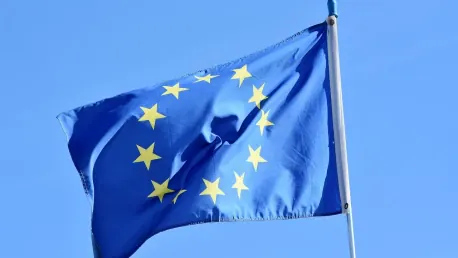The persistent gender pay gap in the European Union, where women continue to earn on average 13% less than men, remains a significant issue despite ongoing efforts to promote equality. For every euro that a man earns, a woman makes only 87 cents, highlighting a disparity that Equal Pay Day aims to address each year. In 2023, Equal Pay Day falls on November 15, serving as a stark reminder of the progress still needed to achieve true pay equity.
The Symbolism of Equal Pay Day
Equal Pay Day symbolizes the additional days women must work each year to match the earnings of men, reflecting the continuous struggle for gender equality. Established nearly seven decades ago as a foundational EU principle, equal pay remains an elusive goal. This day not only commemorates past efforts but also reinforces the urgency of addressing the wage gap comprehensively and effectively.
Key Figures Advocating for Change
Prominent EU officials, such as Věra Jourová, Vice-President for Values and Transparency, and Helena Dalli, Commissioner for Equality, have reiterated the commitment to achieving true pay equity. They emphasize that no company should pay women less than men when skills, effort, responsibility, and working conditions are comparable. This persistent inequality is often perpetuated by entrenched gender stereotypes, which influence various facets of life and hinder progress.
Strategic Measures to Close the Gap
To combat gender pay disparities, the European Commission has implemented several strategic measures under its Gender Equality Strategy. These include new legislation aimed at improving work-life balance and achieving gender balance on corporate boards. A significant legislative step is the Pay Transparency Directive, designed to empower workers to enforce their right to equal pay and provide better access to justice for those facing pay discrimination.
Challenging Gender Stereotypes
Beyond legislative efforts, the European Commission has launched a campaign to challenge and change gender stereotypes, aiming to alter how entrenched gender roles affect career choices, caregiving responsibilities, and decision-making processes. This campaign underscores the necessity of addressing societal norms that perpetuate inequality.
Ongoing Efforts and Political Priorities
Despite numerous actions and legal frameworks promoting gender equality, progress remains slow. The persistent gender pay gap underscores the need for continued and enhanced efforts to change societal norms and practices. The European Commission remains steadfast in its commitment to gender equality and the fight against pay disparities, making these issues central political priorities.
Supporting Materials and Resources
The gender pay gap persists as a troubling issue in the European Union, with women earning on average 13% less than their male counterparts. This inequity means that for every euro a man earns, a woman receives just 87 cents, underscoring a significant disparity in wages between genders. Despite concerted efforts and legislative measures aimed at promoting gender equality, the gap remains stubbornly wide, affecting the economic independence and career prospects of women across the region. Equal Pay Day, which falls on November 15 in 2023, serves as a potent annual reminder of the ongoing struggle to achieve true pay equity. This day symbolizes the extra time women must work to earn what men did in the previous year, highlighting the persistent nature of wage discrimination. It’s a call to action for policymakers, employers, and society at large to intensify efforts to close this gap and ensure that men and women are compensated equally for equal work. Achieving this goal is crucial for fostering a fair and inclusive workforce and advancing overall societal progress.









